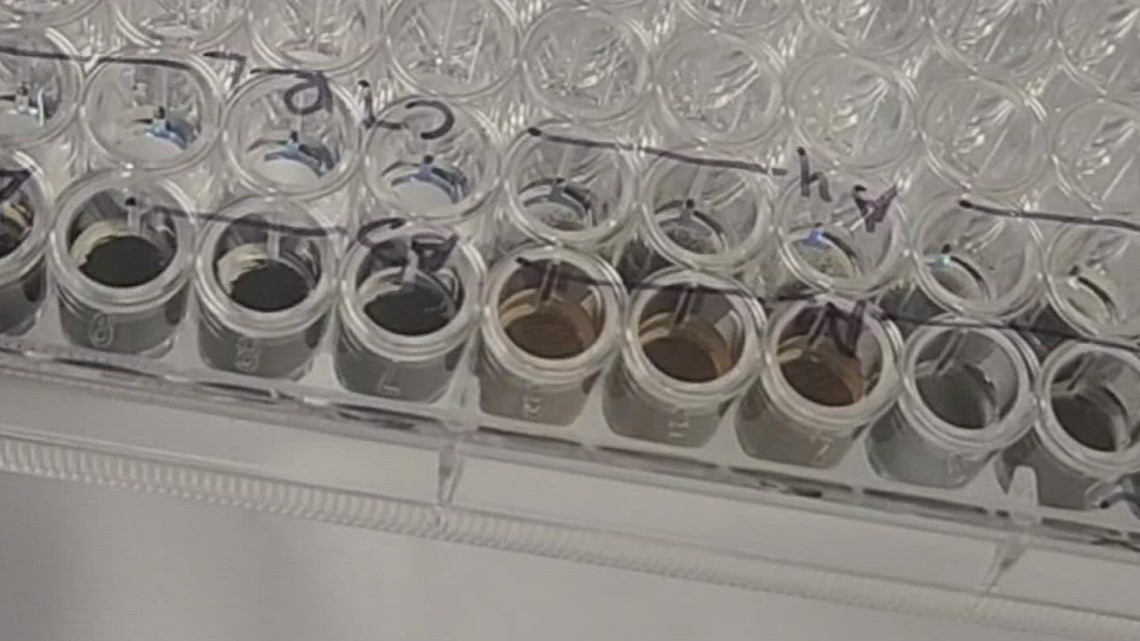TAMU-CC researchers pave the way for new dental technology


The team created groundbreaking nanotechnology to create an interactive toothbrush and remote controlled toothpaste.
CORPUS CHRISTI, Texas — Exciting research is taking place out of the Island University that is expected to revamp the way we brush our teeth.
TAMU-CC Nanotoxicologist Leisha Armijo-Martin said that the project she and a group of students are spearheading is the future of dental care.
“Your consumer has a smart phone, they don’t want a manual toothbrush, and the same toothpaste their grandparents used,” she said.
Martin and her team are using groundbreaking nanotechnology to create an interactive toothbrush and remote controlled toothpaste.
“These particles are very small nanoparticles, a billionth of a meter, so I could fit a quarter of a million on the tip of one of my hairs,” she said.
The tiny particles are capable of reaching below the gums, cavities, and hard to reach crevices within the teeth — treating plaque and bacteria.
“The fact that you can get them to move where you want to, mechanical scrubbing remotely, you can pull them between the teeth, and avoid the traumatic flossing experience,” she said.
TAMU-CC chemistry graduate student Shayden Fritz told 3NEWS that she is grateful for the opportunity to be on a team on the verge of cutting edge science.
“Because not many students get to be apart of something along this basis,” she said. “So it’s cool seeing how all the test are completed and how to get FDA approval for it to be on the shelves in the future.”
The research was funded by a grant from the National Science Foundation in the amount of $256,000.
“In the past seven months, gone from bench top, producing these particles from atoms, functionalizing them, characterizing them into the preclinical phase,” Martin said.
She adds that only about one-fourth of students of the STEM workforce is female. That number is even smaller when it comes to Black and Hispanic researchers. But this team is a diverse group of all women.
Second year marine biology masters student Kayla Simpson said that helping on a ground breaking project with likeminded individuals is inspirational.
“I think too as a group of women in science we really understand each other, we communicate really well, no one works on one thing, we help each other other,” she said.
So far, testing on mice has been shown to wipe out infections with just one treatment.
The team will need to go through one more round of testing before getting approval from the FDA to go to human clinical trials. Once approved, Martin said the product could land on store shelves within the next two years.



